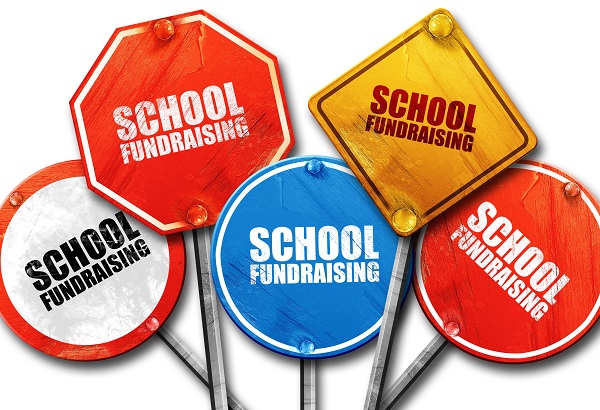
Fundraising is an important activity for all schools, helping to provide resources and fund opportunities for students outside the scope of the annual school budget. Sport and cultural trips, specialist learning equipment and extension experiences are just some examples of the benefits fundraising can provide. Fundraisers can also support scholarship opportunities for students, or subsidise the cost of materials for students who need additional financial support. Professional development for teachers and facility upgrades can also be made possible by successful fundraising activities.
Beyond financial support for schools, the benefits of fundraising can extend to the wider community, encouraging relationships and parent participation in schools. When parents and members of the community come together to work toward a common goal, it can build a shared identity and sense of pride. For students, fundraising can help develop soft skills like responsibility, teamwork and time management, and encourage students to give back to the school, volunteering their time or expertise.
Finding fundraising ideas, though, that are simple to organise and profitable can be a challenge, particularly in a school context. Often relying on the help of volunteers, it is important for school fundraising to provide maximum return.
And fundraising is not just the remit of schools. Families and businesses are increasingly asked to donate money, for state or nation-wide appeals, specific causes, and local sport or community clubs. It is essential, then, that your school fundraiser stands out.
The success of any fundraising venture is linked to its efficient organisation. Often, school parent communities, like the Parents and Friends Association will take the lead in this. Schools should work collaboratively with parent communities to facilitate fundraisers. Clear parameters should be established, including what the fundraiser is for, how and when details will be communicated with the school community and, if appropriate, wider community, and the monetary goal. All fundraising must comply with relevant state laws, so schools are encouraged to consult with relevant authorities to ensure this.
Parent associations, while comprised of volunteers, often contain many parents with expertise in a certain field, which can be drawn on to enhance fundraising efforts. A person proficient at utilising social media platforms, for example may be tasked with coordinating social media content to promote the fundraiser; an individual with links to a local business may be asked to approach the business for support. School staff, as well, can support fundraising efforts. Helping to explain the benefits the fundraiser will have for the school community or specific links to learning opportunities may assist in validating the fundraiser, deeming it worthwhile to students, parents and their families.
Engaging the school community is also integral to the success of any fundraising endeavour. Students who can see direct benefits for themselves may be more inclined to volunteer their time or services to assist with fundraising. Similarly, parents who can identify a need and recognise the benefit of a school fundraiser may be more likely to lend their support.
When considering the best items and events for a school fundraiser, the opportunities for schools are vast.
Consumables such as chocolates, bakery treats and pies have long been a staple of the school fundraiser. With broad appeal, these items can be easily sold by students to family and friends. Collaborations with local businesses such as bakeries can provide benefits for the wider community.
Keepsakes can make excellent gifts for occasions such as Mother’s Day, Father’s Day and Christmas. Photo frames and photo keyrings, coffee mugs and pens all provide mementos the whole family can cherish. Fundraising around Easter could involve the sale of hot cross buns or chocolate; hand painted ornaments or specialist wrapping paper would serve well at Christmas. Linking a fundraiser to an occasion and selecting appropriate products may help to make the fundraiser profitable, as families work to support the school and use the convenience of the school fundraiser to ease the burden of gift shopping that special occasions can bring.
Raffles are also a popular choice for school fundraisers and provide an additional opportunity to support local businesses and showcase the strengths of a school’s locale and community. Approaching local businesses to donate items or offer vouchers for their services can be a good way to promote small and local businesses to the school community. Raffle sales provide revenue for the school, and the ability to advertise their goods or services make raffles an easy buy-in for donated goods.
For added efficiency, fundraisers can incorporate school curricula. For example, auctions of student artwork could be held. Alternately, schools could utilise the talents of parent associations and hold craft fairs, challenging students and parents to use their creativity for good.
Recent shifts in community consciousness towards caring for the planet make reusable items a great choice for fundraising. A variety of products are available to schools, including reusable coffee mugs, shopping bags and food containers. Other household items like hand sanitiser, sunscreen and band aids are also popular fundraising items. These products can include school-specific branding, thus serving the dual purpose of fundraising and marketing.
Most importantly, remember to have fun with your fundraising! Often the simplest ideas, that are easy to organise, prove the most successful. Planning, organisation and a great product will help your fundraiser to be a hit with students, their families and the broader community.
The much-delayed English draft curriculum is now out for consultation, generating discussion from teachers.
Research from AUT demonstrates arts, culture and recreation have positive impacts on all aspects of…
How effective has the school phone ban been in achieving its aims? Researchers from the…
School camps and excursions deliver hands on learning experiences, helping to consolidate classroom learning.
Innovations in AV technologies present new opportunities to engage with students. We look at how…
A new report from the University of Auckland’s Our Voices Project asks young people what…
This website uses cookies.